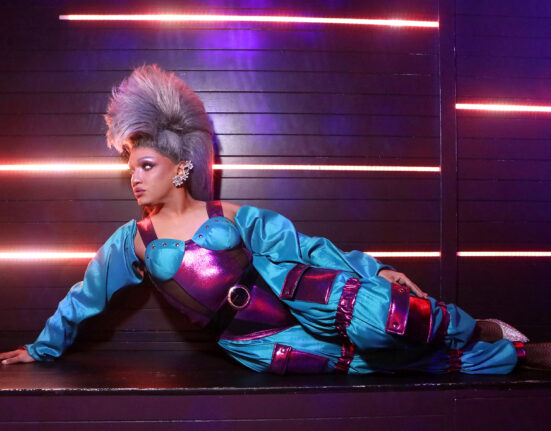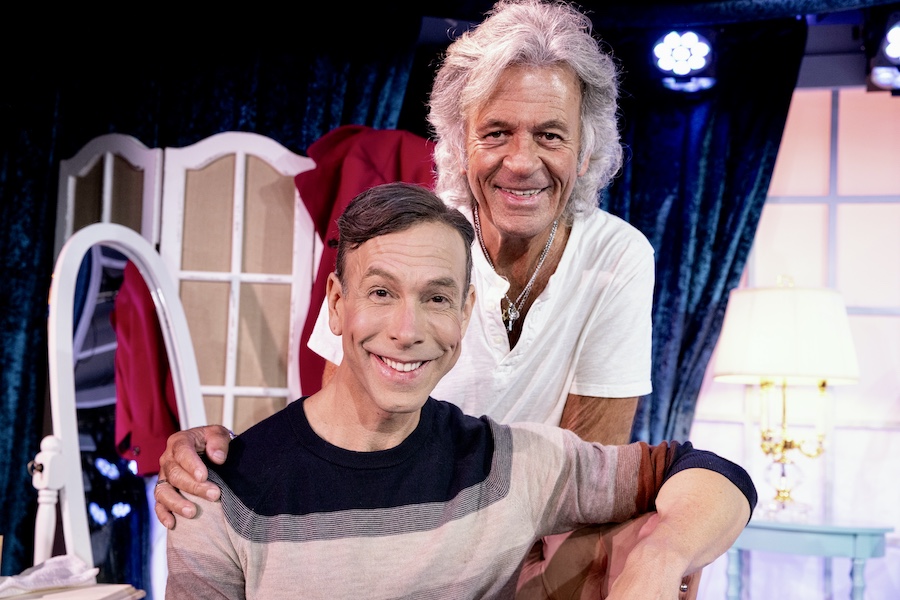
Wade McCollum is an award winning actor, composer, singer, writer, dancer, director, filmmaker, and in his spare time, a student of cognitive neuroscience. What’s more, he is currently starring off-Broadway in the one-man show “Make Me Gorgeous.” Written and directed by Donald “Donnie” Horn, “Make Me Gorgeous” celebrates the life of LGBTQ avant-garde pioneer Kenneth “Mr. Madam” Marlowe. At Playhouse 46 at St. Luke’s until December 31st, Wade transforms from Kenneth into Kate every night.
Kenneth Marlowe was a hairdresser to the stars, the madam of a Hollywood gay prostitution ring, an author, a female impersonator, a private in the army, a call boy, a Christian missionary, a newspaper columnist, a mortuary cosmetologist, and finally, later in life, Marlowe transitioned to a woman, Kate Marlowe. Although considered the gayest person on the planet–and despite all of their trendsetting accomplishments–Marlowe was somehow overlooked in the LGBTQ history books. Like a salacious alchemist, Wade transforms the protagonist’s anguish and triumph into an acknowledgment of truth.
Wade McCollum is an acclaimed star, beginning his career with a role in Hedwig and the Angry Inch. He went on to appear in Jersey Boys and the Priscilla, Queen of the Desert national tour, and he debuted on Broadway in Wicked. He’s also known for his television roles on Madam Secretary, FBI: Most Wanted, The Knick, and a vast array of other shows. He discussed his career with Get Out in an intimate conversation…
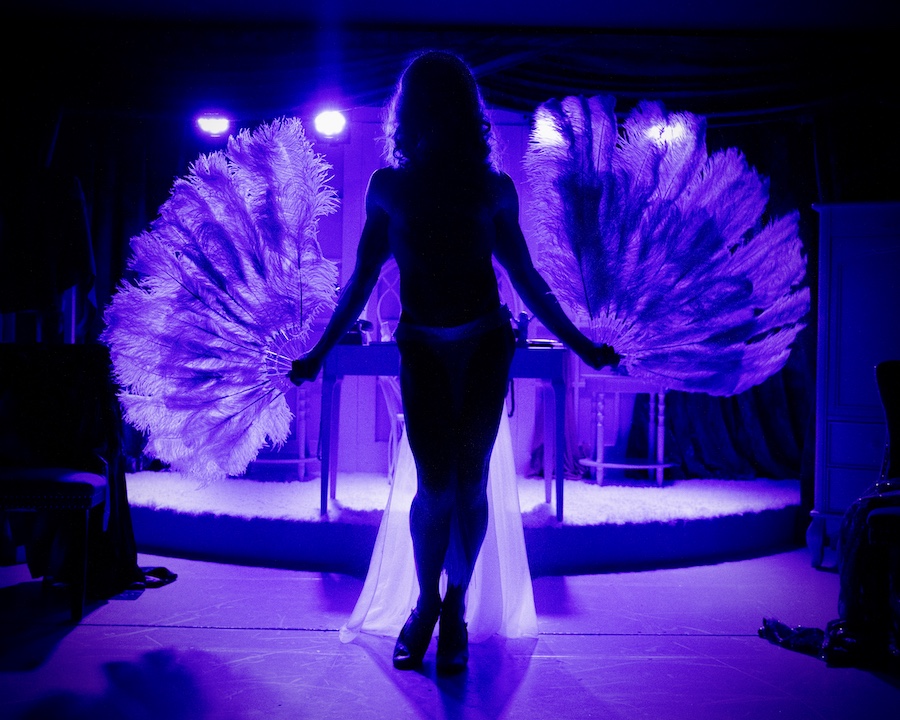
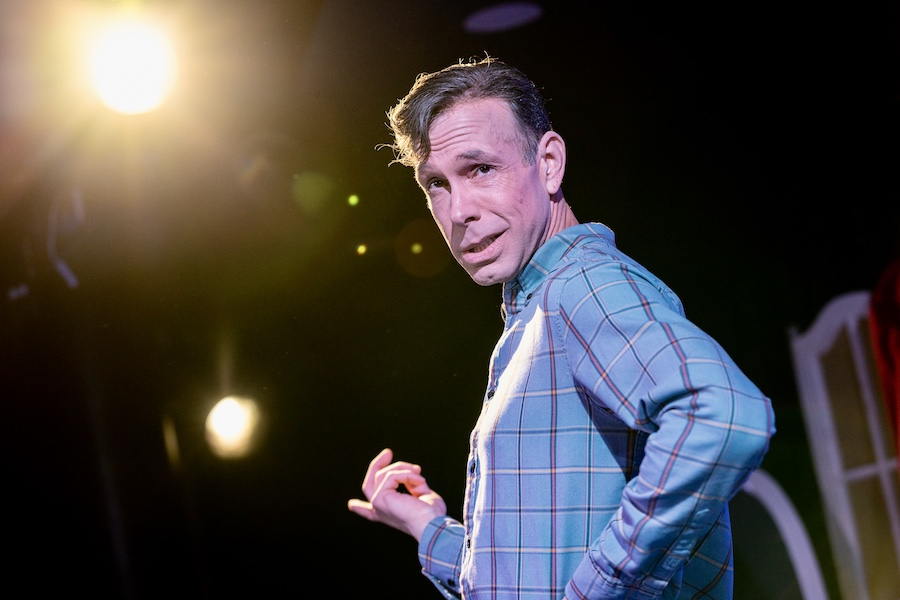
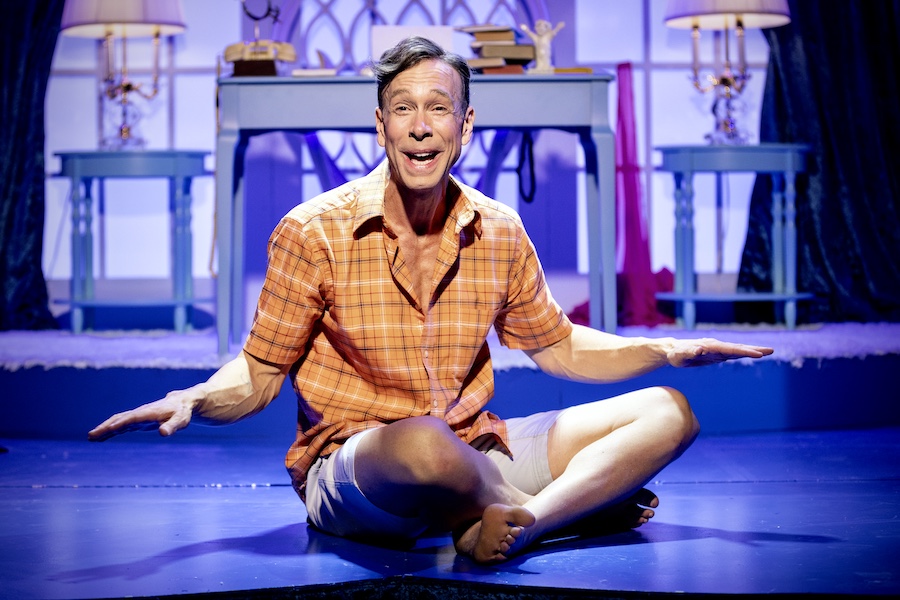
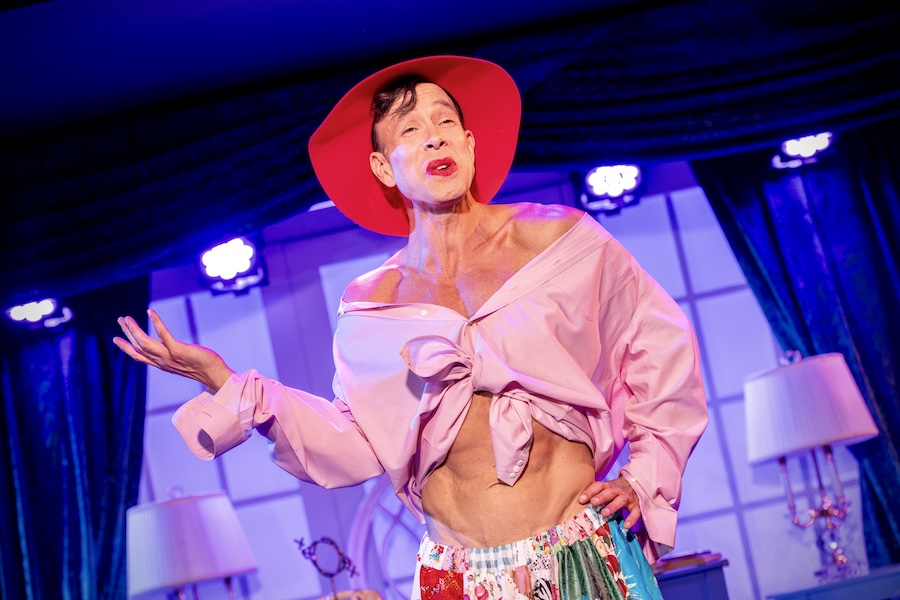
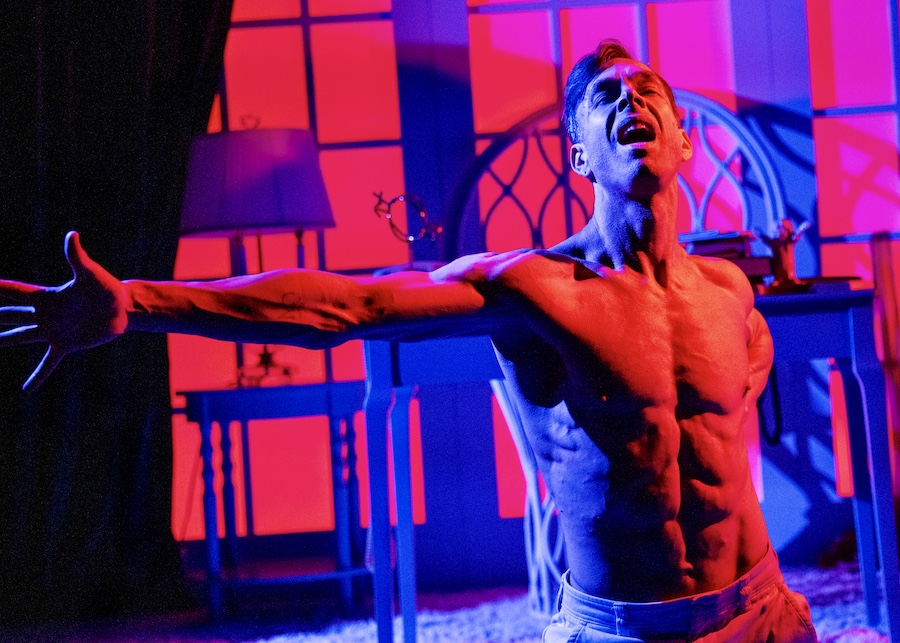
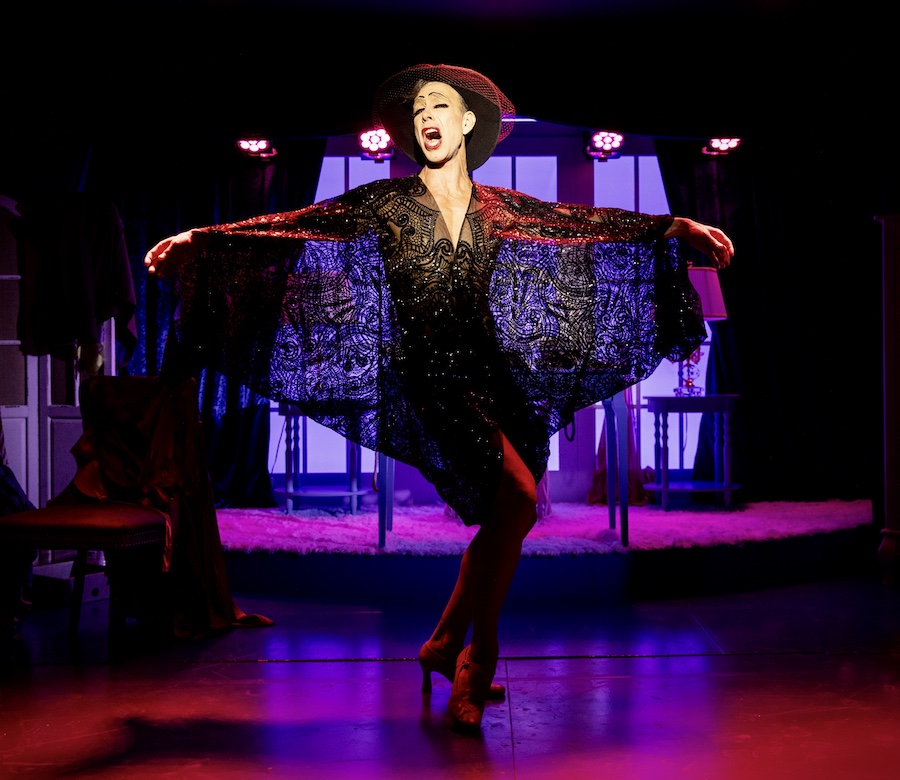
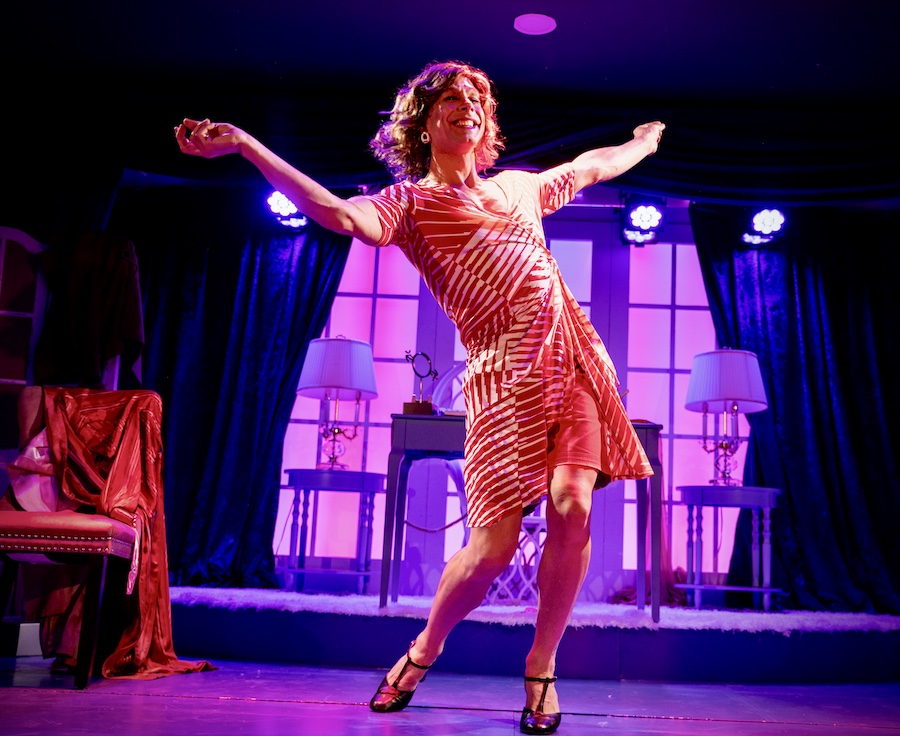
INTERVIEW >>>
So you’re doing this fabulous play. It’s a one-man show?
Yes, it is. It’s a hefty lift. But it’s a really fun ride once I get on the train and it starts going.
So how did you get the role? And did you have to prepare for it?
Donnie, the playwright and producer, and I worked together long, long ago. He produced the first professional job that I did out of school back in Oregon. It was a production of Blood Brothers. And then, we did a couple of other shows. So we’ve known each other for many, many years. Last year, I was on tour with My Fair Lady and he just randomly wrote me and said he’d been working on that and he had me in mind and would I be interested in coming to Portland to do the show and see what we have. I read it and I was very curious about the character–very intrigued about why this person hasn’t been catalogued in history, queer or otherwise. It was sort of baffling to me, seeing how much he did in his lifetime and how dynamic as a human he was. I was really confused and intrigued and curious, like I said. So I said, “I would love to” if we could kind of collaborate on the writing process. Because I knew it was going to have to be adjusted towards my skill set and also, I wanted to add some music and jokes. So yeah, we started it last year and he raised some money, and now we’re here in New York.
So doing this role has to be a little bit challenging. What was your biggest challenge?
Onstage, I think the biggest challenge was getting fake eyelashes on. Playing multiple characters and keeping everything on track while I am drying the eyelash glue and timing it out. That, technically, was probably the hardest thing I had to do without getting glue in my eye. That is sort of the glib challenge. The more rigorous or dynamic challenge is sort of telling a whole human’s story in 90 minutes and sort of condensing what is a lifetime of kaleidoscopic locations, kaleidoscopic gender identities, populating that whole human’s world and all the characters he met along the way. And while doing that, honoring his life, respecting his life and the historical accuracy of his life. Also delivering a satisfying 90 minutes of dramatically sound narrative. That’s probably the most rigorous challenge.
You said before that you had to add some things into this production. How much of Wade did you add?
That’s a good question. I think, as with any one person show, it’s like spending an evening with that person. I think it has to sort of necessarily be personalized. Obviously, all the anecdotes and all of the text itself is their story and is pulled from Donnie’s biography that he wrote. In terms of things we added that are distinctly Wade-ish, he wasn’t much of a singer, but I am, so we made the decision that he is going to be able to sing. So he sings one song and I wrote that for him for the show.
That is not necessarily something he did. He did sing in some choral numbers with some of the female impersonators. So I would say the fact that he sings in this show is probably distinctly pulled from my skill set.
After the show is over, what you have planned?
I go right into and maybe even overlap with Water for Elephants on Broadway. I am playing a character named Wade. We just shot the commercial and we did an out-of-town run at a theater in Atlanta this past summer. That is going to the Imperial Theatre in February, officially opening in March.
Thus far, what’s been the highlight of your career? Have you had one? Are you still looking for one?
I’m terrible with superlatives. I am hopelessly optimistic. I definitely haven’t reached the highlight of my career–I’ll say that. But if I had to sort of r etrospectively analyze what would be the apex at this point, there have been so many high points, but actually, I’d have to say right now is really great.
If you could have me ask you any question on the planet, what would you have me ask and how would you answer it?
I think I would have you ask me what my interests are outside of either television and acting.
Okay, I will ask you that. When you are not acting, singing, composing etc., what do you like to do?
I am getting a neuroscience degree. I am working on a doctoral thesis around the neuroscience of narratives where the emotional life of characters versus the emotional life of actors lives in the brain. If there are specialized or augmented parts of the brain that actors possess that may be helpful for people that are not actors in terms of emotional resilience, emotional agility. And also, looking at perhaps adaptations of actors who are having to create a multitude of trauma several times a week. And how we can better take care of our actors in that situation and perhaps help them not hurt their brains with their emotional health by undergoing imaginal trauma, which the brain doesn’t really know the difference between the two. I am intensely curious, and then the past three years or so, I have actually sort of formalized my scientific training. I feel like a whole person now. The left brain quantitative person is now getting their time to shine as well.
I don’t know where you are finding the time to do this but you are also a composer. And composers have very strange brains. Composers never sleep.
No, no. There’s a quietude in the middle of the night and I think I do some of my best composing at 3:30 AM, when most people are asleep. There’s a physical quietude that somehow allows the listening to be clearer, at least in my universe.
Is there anything else that you would want to discuss that we haven’t?
I would like to reiterate that Donnie and I both really want this play to be an offering to the trans and non-binary, non-gender-conforming community. As an offering of not just fun or protection and visibility and perhaps a little bit of feeling and celebration. It really feels like an evening of celebrating the queer community and everyone coming together. Learning about the pre-AIDS crisis queer world that has sort of been straight washed out of society. It sort of feels like the spirits of the past are dancing in the room. We are honoring the past. Not to say that it’s not filled with all sorts of campy delight, but that there is a real solid part there that is hopefully anchoring a sense of longing and protection.
I wonder why no one’s heard of Kenneth and Kate.
I don’t know. I feel the same way. I have lots of theories. Some people live really boisterous lives and then for some reason just fall into the category of renewing. So I’m grateful to Donnie for bringing Kenneth/Kate’s story Into the light, so we can really celebrate this person.

